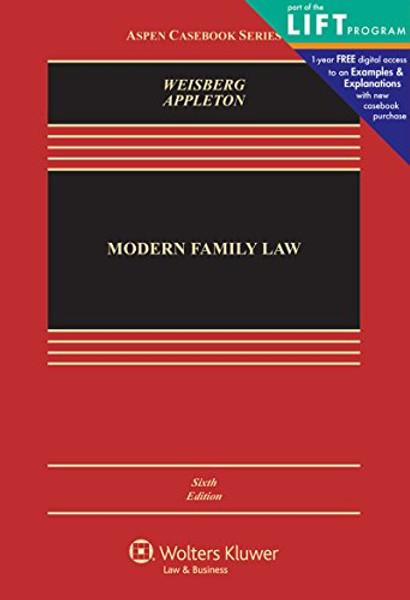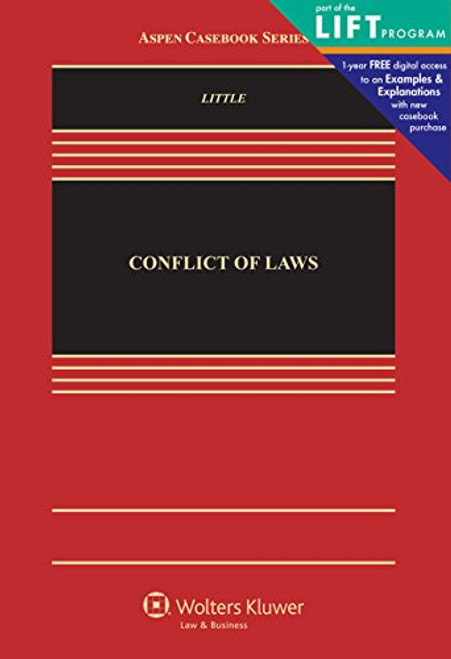Product Overview
When you purchase a new version of this casebook from the LIFT Program, you receive 1-year FREE digital access to the corresponding Examples & Explanations in your course area. Now available in an interactive study center, Examples & Explanations offer hypothetical questions complemented by detailed explanations that allow you to test your knowledge of the topics covered in class.
Starting July 1, 2017, if your new casebook purchase does not come with an access code on the inside cover of the book, please contact Wolters Kluwer customer service. The email address and phone number for customer service are on the copyright page, found within the first few pages, of your casebook.
Modern Family Law reflects the social diversity of the modern family as it examines the legal impacts of the women s movement, the children s rights movement, the fathers rights movement, domestic violence, changing sexual mores, nontraditional family forms, and developments in reproductive technology. Integrating valuable interdisciplinary perspectives, the text includes excerpts, notes, and questions emanating from history, psychology, sociology, social work, medicine, and philosophy. A variety of problem exercises, most derived from actual cases and current events, covers cross-cutting themes as well as the basics of family law. Human-interest stories that complement the cases heighten student awareness of the real impact of the law on people s lives. Modern Family Law easily adapts to shorter or longer courses.The Sixth Edition offers contemporary perspectives on family law theory and covers new developments on such topics as alienation of affections, adoption, assisted reproduction, attorneys sexual ethics, bigamy, child abuse, child custody and support, divorce, domestic violence, grandparents visitation rights, names in the family, parentage, premarital agreements, and reproductive rights. The text features major coverage of developments on same-sex marriage, DOMA, and other issues of equality for gay and lesbian families. The decline of marriage and the rise of new conceptualizations of family are explored along with the return of the culture wars, including political disputes about contraception.









![Torts: Cases and Materials [Connected Casebook] (Aspen Casebook Series) Torts: Cases and Materials [Connected Casebook] (Aspen Casebook Series)](https://cdn11.bigcommerce.com/s-g9mehhprbl/images/stencil/500x659/products/319430/656054/416rv9GY8hL__26962__69342.1693757659.jpg?c=1)
![Commentaries and Cases on the Law of Business Organizations [Connected Casebook] (Aspen Casebook Series) Commentaries and Cases on the Law of Business Organizations [Connected Casebook] (Aspen Casebook Series)](https://cdn11.bigcommerce.com/s-g9mehhprbl/images/stencil/500x659/products/364597/691225/41TyCQtlmXL__44089.1699816801.jpg?c=1)
